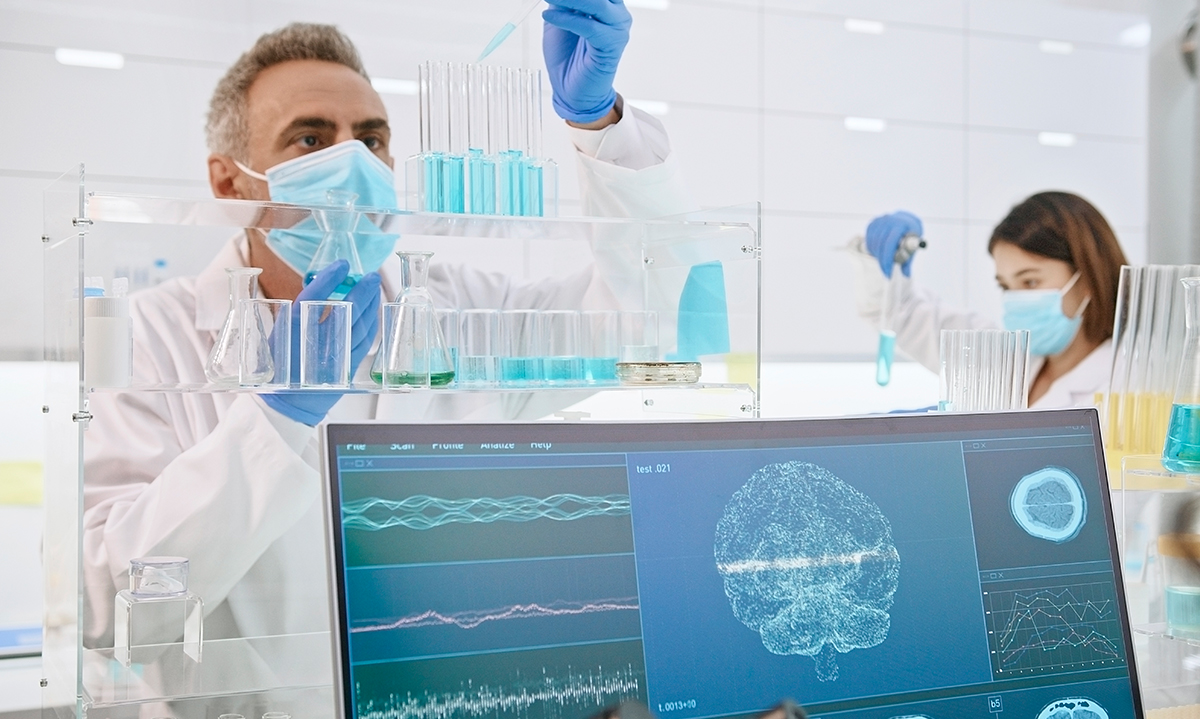Over a 5-year period, eight researchers will investigate challenges in which data science plays a crucial role by developing artificial intelligence, bioinformatics, statistics and other things.
The eight researchers are at different stages of their careers, and each must develop and streamline data science methods for solving complex problems in biomedicine, health, sustainability, biotechnology and research in the natural and technical sciences.
The Novo Nordisk Foundation has awarded a total of DKK 65.5 million for these eight projects through the Foundation’s Data Science Investigator Programme. The grant categories are: Emerging Investigator, Ascending Investigator and Distinguished Investigator, which target research leaders at various career stages to support attractive career paths for the most skilled specialists within data science.
Supporting careers at different stages
In the Emerging Investigator category, Julius Kirkegaard, postdoctoral fellow at the University of Copenhagen, will focus on expanding the neural network machine learning method by simulating physical models. The project will build real-world knowledge into the neural network architecture and thereby combine the best of both worlds: neural networks can model the unknowns in a system, whereas physical simulation can provide real expert input for the model. The aim of the project is to enable extensive generalization from small data sets that can be used to study physical and biological phenomena such as bacterial growth, the motility of microorganisms, protein collection and organ development.
In the Ascending Investigator category, Gabriel Renaud, Associate Professor at the Technical University of Denmark, will focus on developing new algorithms to compile fragmented information from ancient DNA in a way that can improve knowledge of prehistoric life on Earth. The new methods can be used for such purposes as reconstructing the genomes of bacteria and viruses that have been frozen in permafrost or inland ice for thousands of years but may be about to thaw and re-emerge as a result of climate change. Investigating these bacteria and viruses now can avoid being completely unprepared if they become active again, since humans have not had contact with them for many millenniums and thus have not developed any immune response to them. In addition, the project can provide important knowledge about bacteria and viruses and bacteria in general.
One grant recipient in the Distinguished Investigator category is Susanne Ditlevsen, Professor at the University of Copenhagen, who is seeking to improve how statistical conclusions are made based on empirical data. The challenge is that modern empirical methods enormously increase the quantity and types of data collected, and thus the need is growing for complex models that can manage these complex data. To incorporate this complexity, the project will develop hybrid methods that enable the model to be divided into two parts: a nonlinear, stochastic (random) part in which sophisticated methods can be used and a deterministic part, which can be continued according to the dynamics established. This combination is expected to lead to more robust and computationally efficient statistical calculations. These new methods will be used for such purposes as studying neuronal rhythms, human visual attention and marine animal behaviour in collaboration with researchers in Denmark and Greenland.
The Foundation has awarded these grants in open competition through its Data Science Investigator Programme and comprise 12 projects receiving grants in 2020 through the Foundation’s new Data Science Initiative, to which DKK 410 million has been allocated in 2020–2022. The applications for the 2021 programmes open at the end of December 2020.
“By awarding these eight grants for researchers at different career stages, the Novo Nordisk Foundation wants to emphasize the importance of attracting and retaining data scientists in academia. Several of the projects will lead to the development of fundamental algorithms and understanding within physics, mathematics and other subjects. These will form a solid foundation that is inherently relevant and also necessary to develop data science with the broadest possible applications. These application areas range from developing medicine and data-driven patient care to conducting research to develop sustainable solutions to climate challenges,” says Lene Oddershede, Senior Vice President, Natural & Technical Sciences, Novo Nordisk Foundation.
Data Science Investigator grants 2020
Emerging Investigators
Julius Kirkegaard, postdoctoral fellow, Niels Bohr Institute, University of Copenhagen, Differentiable Physical Models for Data Analysis in Biology: DKK 7,202,086
Bulat Ibragimov, Assistant Professor, Department of Computer Science, University of Copenhagen, Leveraging Artificial Intelligence for Pancreatic Cancer Diagnosis, Treatment Planning and Treatment Outcome Prediction: DKK 7,879,373
Tugce Karaderi, Assistant Professor, Center for Health Data Science, University of Copenhagen, Data Science Approaches to Study Epidemiological and Genetic Underpinnings of Hypothyroidism to Pave the Way for Precision Medicine: DKK 9,175,424
Ascending Investigators
Martin Andersen, Associate Professor, Department of Applied Mathematics and Computer Science, Technical University of Denmark, Scalable Optimization for Data Science: DKK 7,702,145
Anders Hviid, Senior Researcher, Department of Epidemiology Research, Statens Serum Institut, Identifying Heterogeneous Treatment Effects with Machine Learning: DKK 9,052,063
Gabriel Renaud, Associate Professor, Department of Health Technology, Technical University of Denmark, Ancient Genomes Reconstruction: DKK 7,950,623
Distinguished Investigators
Susanne Ditlevsen, Professor, Department of Mathematical Sciences, University of Copenhagen, Statistical Inference for Coupled Stochastic Processes with Multiple Timescales and Changing Environments: DKK 8,195,513
Niels Richard Hansen, Professor, Department of Mathematical Sciences, University of Copenhagen, CLUE: Causal Learning for Unstructured Events: DKK 8,409,592
Further information
Sabina Askholm Larsen, Communications Partner, +45 2367 3226, [email protected]








